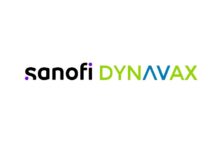Medication adherence has long been one of healthcare’s toughest challenges. Even the most effective treatment plan fails if patients don’t take their medications consistently. This isn’t just a patient-level problem, though; it has massive implications for healthcare systems, pharmaceutical research, and treatment outcomes worldwide.
The good news is that digital innovation is stepping in to close this gap. From smart packaging to mobile health apps, medication adherence solutions are making it easier than ever to track, support, and improve how patients manage their daily routines. These tools go beyond simple reminders, offering real-time feedback, personalized support, and valuable data that benefit both patients and providers.
In this article, we’ll explore how digital solutions are reshaping medication adherence, the key features that make them effective, and why they represent the future of patient-centered care.
Introduction to Digital Tools for Medication Adherence
Medication non-adherence is one of healthcare’s most persistent challenges. For researchers and providers, this creates a serious blind spot: if you don’t know whether patients are following their treatment plan, you can’t be confident in the results.
That’s where medication adherence solutions come into play. By combining behavioral science with advanced digital tools, these solutions not only help patients adhere to their routines but also provide healthcare professionals with real-time insights into how treatments are actually used in daily life. The result? Better patient outcomes, higher quality data in clinical trials, and a stronger foundation for informed decision-making.
The Role of Medication Reminders in Enhancing Patient Compliance
At its core, adherence often comes down to memory and routine. Even the most motivated patients can forget a dose during a busy day. Digital reminders act as a safety net, ensuring medication isn’t overlooked.
But reminders today are smarter than simple phone alarms. Integrated into medication adherence solutions, they can:
- Sync with dosing history to send alerts only when a dose is truly missed;
- Offer refill notifications so patients never run out unexpectedly;
- Allow caregivers or clinicians to monitor missed reminders and intervene quickly.
The value here is clear: improved consistency means fewer complications, reduced hospitalizations, and more reliable outcomes in clinical studies.
How Mobile Apps Are Changing Medication Adherence
Mobile health apps are now a key driver of adherence. Beyond sending reminders, they provide a whole digital ecosystem for patients and providers:
- Daily logging and surveys help patients record side effects or difficulties in real time;
- Integration with wearables allows for holistic health tracking, combining medication data with physical activity or sleep patterns;
- Data synchronization means providers can access accurate records during appointments or telehealth visits.
For pharma companies, this creates a unique opportunity: apps can feed anonymized, aggregated data back into research, highlighting adherence trends across populations and helping refine treatment protocols.
The Impact of Gamification on Medication Adherence
One of the biggest barriers to long-term adherence is a lack of motivation. Gamification techniques transform the process into something rewarding, even enjoyable, come to that:
- Points and streaks encourage patients to take medication consistently;
- Progress dashboards give a visual sense of achievement;
- Small incentives, like digital badges or rewards, reinforce positive behavior.
This approach is particularly effective in younger patients or in long-term chronic therapies where fatigue can set in. By making adherence less of a burden and more of a challenge to “win,” gamification improves persistence and helps maintain engagement over time.
Real-time Feedback: Keeping Patients Engaged and Accountable
Feedback loops are critical in behavior change. Digital adherence platforms now provide real-time insights that keep patients informed and accountable.
For patients:
- Seeing progress charts can make them feel more in control of their health;
- Missed-dose alerts push them to take action before harm occurs.
For providers:
- Real-time dashboards flag non-adherence early, allowing timely interventions;
- Data analytics reveal patterns—like doses missed during weekends—that can inform personalized support.
When patients feel monitored and supported, engagement rises. At the same time, clinicians and researchers get access to high-quality adherence data that traditional methods (like self-reports or pill counts) could never provide.
Telemedicine Integration with Medication Adherence Solutions
As telemedicine becomes the norm, integrating adherence data into virtual visits adds enormous value. Imagine a patient logging into a video consultation where the provider can immediately see:
- Their adherence rate over the past 30 days;
- Specific times when doses were missed;
- Self-reported challenges around side effects or lifestyle.
This turns a routine consultation into a data-driven conversation, enabling providers to tailor advice and support. For organizations, it also improves the efficiency of care delivery, reducing wasted time on incomplete or unreliable patient histories.
The Benefits of Personalized Adherence Solutions for Patients
No two patients are the same. Some may respond well to a simple reminder, while others need multi-layered support. Digital tools can be tailored to patient profiles, ensuring higher engagement:
- Multiple languages for diverse populations;
- Customized reminders (text messages, push notifications, emails, or even smart speaker alerts);
- Adaptation to drug type (oral, injectable, inhaled) for more precise tracking.
Personalization not only improves adherence rates but also fosters stronger trust in the healthcare system. Patients feel seen as individuals, and researchers obtain more accurate data to assess the effectiveness of treatments.
Overcoming Barriers to Medication Adherence with Digital Solutions
Adherence challenges are complex, but digital tools tackle them from multiple angles:
- Forgetfulness: Smart packaging that records pill removal and triggers reminders;
- Complex Regimens: Mobile apps that simplify multi-drug schedules into easy daily overviews;
- Side Effects and Discouragement: Feedback tools that connect patients quickly with clinicians for support:
- Limited Access to Care: Telehealth integration ensures patients aren’t left on their own.
For healthcare organizations, the benefits are fewer missed doses, stronger long-term outcomes, and reduced costs. For clinical trials, the payoff is higher data integrity and more consistent results.
The Future of Digital Adherence
Digital tools are redefining what’s possible in patient care and clinical research. With medication adherence solutions, providers and researchers can finally bridge the gap between prescription and reality, ensuring patients don’t just receive treatment, but actually take it as intended.
The benefits go far beyond simple reminders. From gamification and personalization to telemedicine integration and real-time analytics, digital solutions make adherence measurable and sustainable.
For any healthcare organization serious about achieving outcomes and innovation, investing in smart adherence tools is no longer optional—it is essential.



















